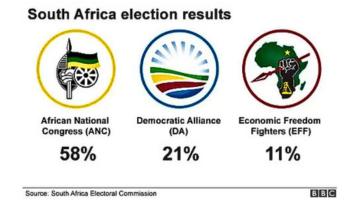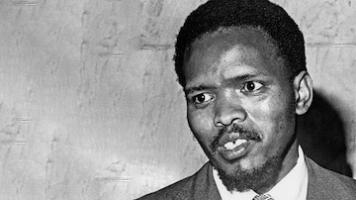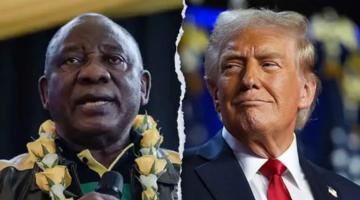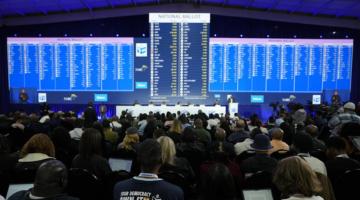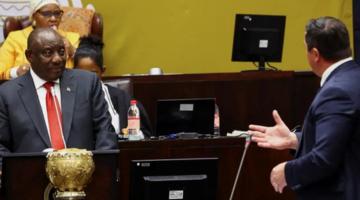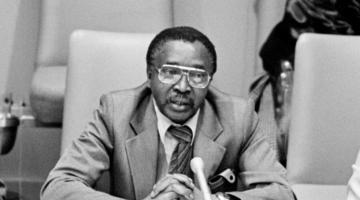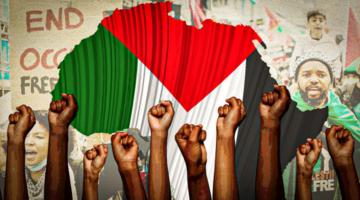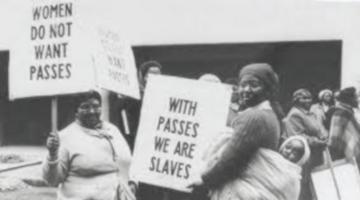Caster Semenya at the 22nd African Athletics Championships, June 2022 CREDIT: Fabien Dubessay / AFP
Anima Adjepong reviews the book "Race to Be Myself" by Caster Semeya, a South African Track and Field star whose gender was questioned by national sporting institutions.
I enjoyed Caster Semenya’s memoir, "The Race to be Myself." I loved the conversational tone of the narrative, the random asides, the airing of grievances and the naming of names. While Semenya insists that she’s retired the use of fisticuffs to settle matters, her fighting spirit is clear in her new book. She extends gratitude to those she recognizes as deserving and condemns those who have contributed to the nearly fifteen-year-long assault on her name, her identity, her family, and her athletic career. She also offers an evenhanded consideration of several others including the South African national sporting institutions who submitted her to nonconsensual gender testing and abandoned her after an injury in 2010, but nevertheless expressed public support for the runner who became known by the nation as “our girl.”
At the heart of the book, Semenya is making a simple argument – she is a woman who has every right to compete in the women’s competition. Efforts to exclude her are rooted in racist narrow conceptualizations of womanhood and attempts to police the boundaries of acceptable embodiment of femininity. Semenya is unequivocal in naming how racism shaped her experiences at the hands of sporting officials. Referring to other athletes from the Global South including Annet Negessa from Uganda and Dutee Chand from India, Semenya clearly explains how Western ideas about what a woman should look and be like has forced Black and Brown women to undergo unnecessary medical interventions to conform to the modern/colonial gender system.
In 1991, when Semenya was born, she was assigned female at birth (AFAB). Between then and now, she asserts, she has always identified first as a girl, now as a woman. From a young age, she knew that she was different. Her body did not develop as her sisters’, and she wondered about the cause. But she never considered herself as anything other than a woman. From her perspective, Semenya is what we call a ciswoman. Assigned female at birth and identifies in that way. World Athletics disagrees.
For the international athletics governing body, being AFAB and identifying as such is not enough. Relying on colonial logics, they legislate and categorize gender through additional tests. This nearly centuries long attempt to determine what makes a person a woman (an inquiry not directed at men) should be enough to illustrate what scholars mean when they say gender is socially constructed. Instead, over and over again, we are told that the arbitrary categories and rubbish science deployed by World Athletics and other sporting organizations offer us insights into who is and is not a woman.
In Semenya’s case, additional testing determined that the body she was born into has XY chromosomes, undescended testicles, and a vagina. If you took high school biology, you might feel confused about how XY chromosomes and a vagina are in the same body. This is because part of how the gender binary remains entrenched is by wishing away the natural expansiveness and differences in human sexual development. Often in the West, children like Semenya, when their genitals are ambiguous at birth, or when at puberty normalized binary changes do not occur, are forced to undergo surgeries to squeeze them into the binary. This is what the World Athletics wanted to do to Semenya when in 2009 they offered her a deal to either undergo a gonadectomy or take estrogen to lower her natural testosterone levels.
Semenya’s insistence that she is a woman is accurate. Her body is different from what has been normalized, but she is no less of a woman for it. For one thing, there is no evidence to prove that Semenya’s body responds to the hormones that run through her in ways that make her like a “typical” (read: normative) man. Instead, her body is set up to operate the way it needs to keep her healthy. Like her fellow elite athletes (think Michael Phelps, Usain Bolt, Katie Ledecky), she has unique abilities that are wildly unlike anything that most of us could ever dream of.
One of Semenya’s key points of evidence that she is a woman is that she has a vagina. In various places throughout the book, she returns to this point. The emphasis on her genitals as proof of her womanhood is unsettling. After all, this is the same bio-logic according to which World Athletics is denouncing her womanhood. She does not have a uterus. She has testes. She has XY chromosomes. It is not clear to me why Semenya did not simply assert her cisgender identity: “I was assigned female at birth and accept that label. It is part of my identity and I have lived in this world as a woman. My identity is not shifting because you say so.” After all, this is the crux of her argument. Medical tests be damned, she is a woman. Why then, refer to a body part as a key definition of her womanhood when that same logic could be, in fact, is being used against her? Another way to think about this is that some women have vaginas. Others do not, perhaps because like Semenya, they have differences in sex development that resulted in ambiguous genitalia. Or perhaps because they are trans.
Later on, Semenya writes: “The IAAF [now World Athletics] argued that allowing me to compete in my natural body was the same as allowing a man who believed he was a woman to compete with women. That was nonsense.” The way Semenya frames this point is painful. Referring to transwomen as men who believe they are women advances a narrative of trans people as delusional. This delusion is the same one that so-called gender critical feminists and those who purport to protect women’s sports accuse Semenya of exhibiting. They dismiss Semenya’s cisgender identity and claim a bio-logic that situates her as a man who insists on being a woman. Recognizing this similarity, it would have been nice to see Semenya extend solidarity towards trans athletes, who like her, have their gender identity challenged by a society that draws strict lines around who is and is not a woman. But instead, Semenya sprints ahead according to the same logics that hamper her. In a sporting world that divides people into categories according to their gender assigned at birth, Semenya affirms her cisgender identity. Her concern is why these institutions shift the rules for whose assigned gender at birth count and whose does not. But at the core of it, she is not challenging the binary logics that structure the sports world. She is simply saying that she fits into that binary despite World Athletics’ preference that she does not.
And what are we to do for trans athletes, whose assigned gender at birth and gender identity do not align? If we follow the logics outlined above, the answer is that those athletes do not get to compete at the highest levels of sports. Yet the question of justice, humanity, and opportunity that appear to be at the core of Race to be Myself lead me to a different conclusion. Perhaps it is time to seriously restructure sports away from gender and towards a recognition of the expansive diversity of human potential.
Anima Adjepong is the author of Afropolitan Projects: Redefining Blackness, Sexualities and Culture from Houston to Accra, founder of Silent Majority, Ghana, a nonprofit that engages indigenous Ghanaian knowledge and collective organizing to champion queer freedom in Ghana and Associate Professor of Women’s, Gender, and Sexuality Studies at the University of Cincinnati. Anima is also a member of the Sports Africa Network.

